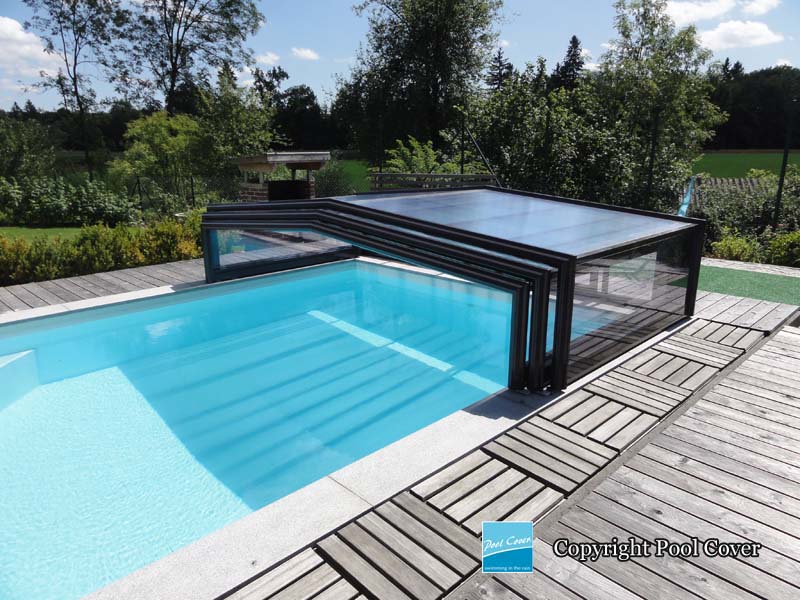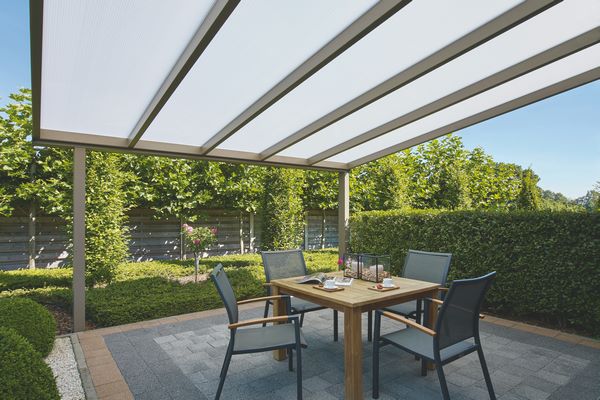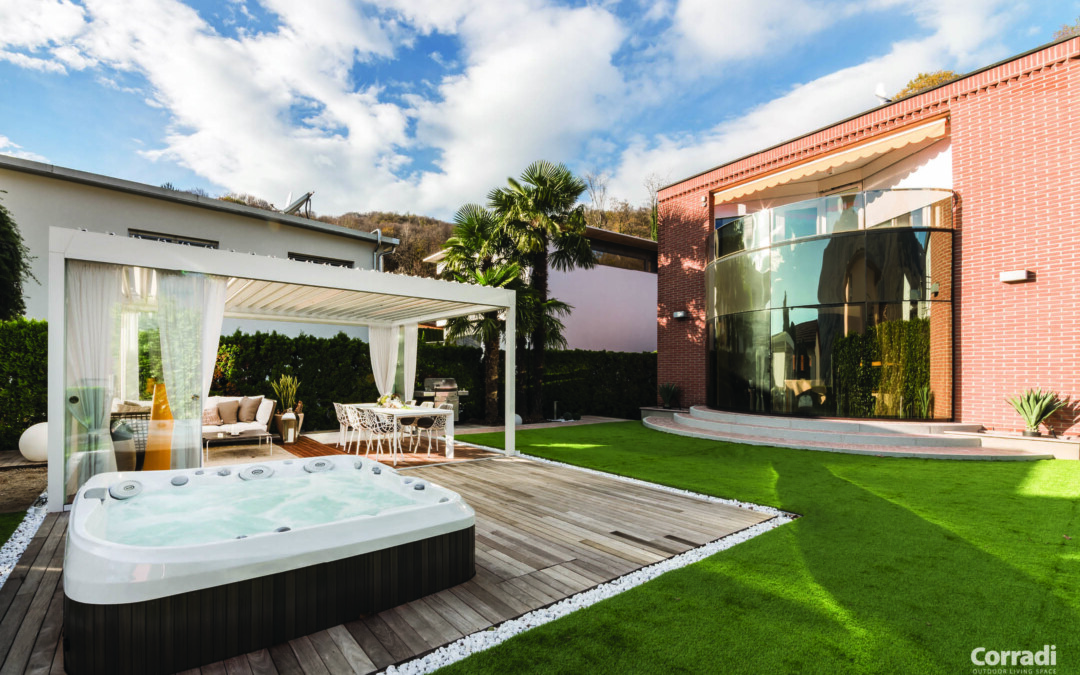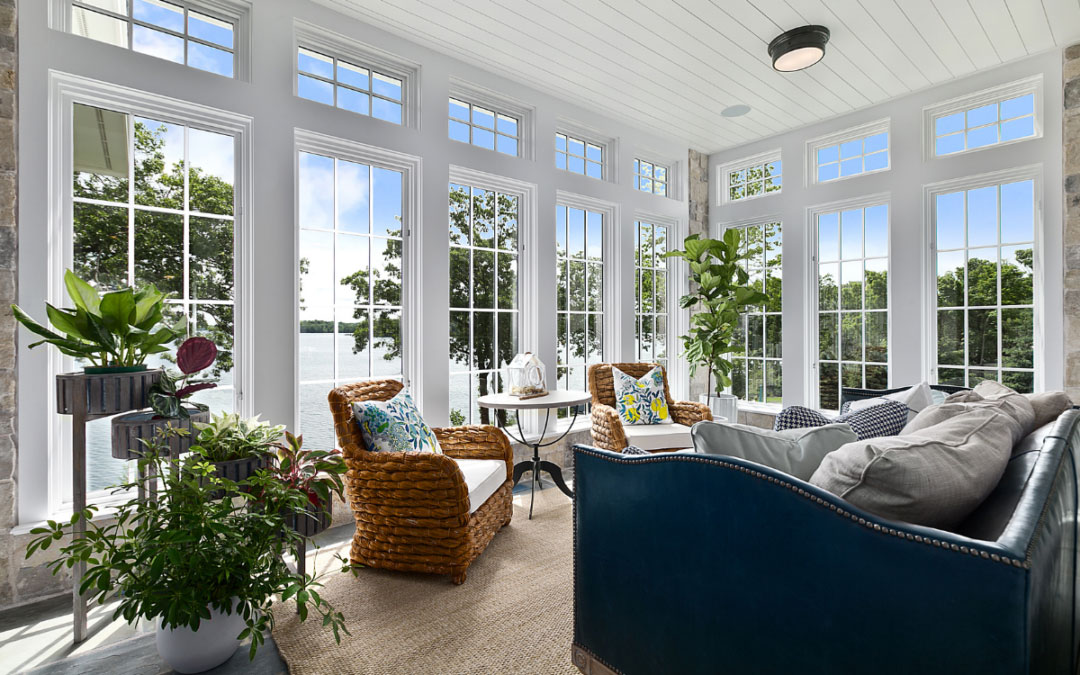The advantages of a pool enclosure
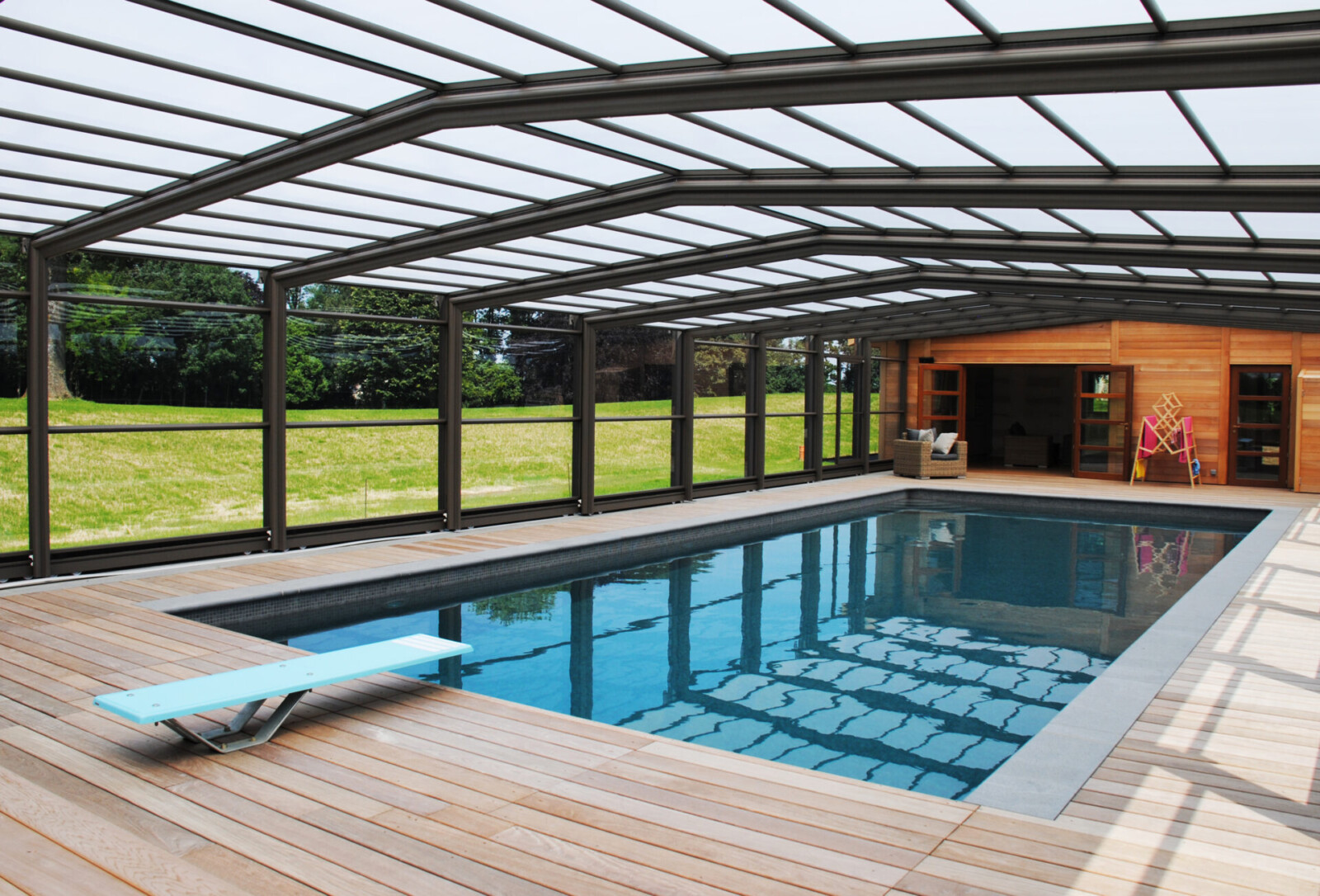
- Protection from the elements and debris: the pool enclosure effectively protects your pool from dirt, leaves and other debris.
- Safety: prevents access to the pool by children and pets, reducing the risk of drowning.
- Extended swimming season: thanks to the greenhouse effect, the water is warmer, so you can enjoy the pool for longer.
- Energy savings: the pool enclosure limits water evaporation and maintains its temperature, reducing heating consumption.
The disadvantages of a pool enclosure
- Aesthetics: some pool enclosure models are less aesthetically pleasing than verandas.
- Limited space: a pool enclosure generally doesn’t offer as much space as a veranda.
The benefits of a veranda
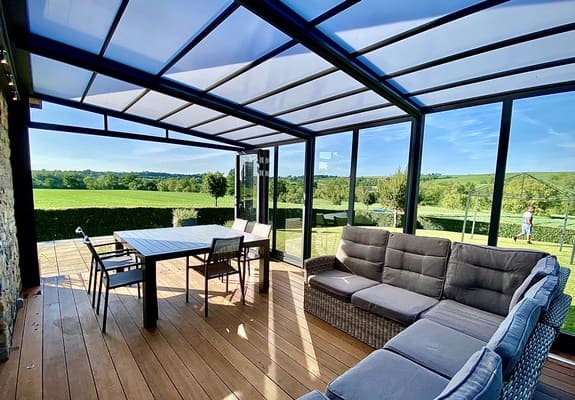
Installing a veranda offers many advantages:
- Aesthetics and comfort: the veranda offers additional living space, often more aesthetic and comfortable than the pool enclosure.
- Property enhancement: a well-designed, quality veranda can increase the value of your home.
- Relaxation space: the veranda lets you enjoy your pool while protected from the elements and the sun, with space to relax, eat or entertain friends.
The disadvantages of a veranda
- Cost: verandas are generally more expensive to build and maintain than pool enclosures.
- Technical constraints: verandas require more extensive construction work and must be adapted to the structure of the house.
- Less protection: although a veranda provides protection from the elements, it doesn’t offer the same level of safety for children and pets as a pool enclosure.
Pool enclosure vs. veranda
| Aspects | Pool enclosure | Veranda |
| Security | Designed to protect the pool and prevent access by children and pets. | Lower level of safety, unless additional devices are installed. |
| Comfort and aesthetics | Less aesthetic, mainly designed to protect the pond. | More comfortable and attractive, offering additional living space. |
| Cost | Generally less costly to build and maintain. | Higher installation and maintenance costs, but can add value to the property. |
| Basin protection | Effective protection against weather and debris. | Protects against the elements, but less effective against debris. |
| Space | Limited space, mainly around the pool. | Larger relaxation area for entertaining or dining. |
| Maintenance | Less maintenance, as it is primarily designed to protect the pool. | Higher maintenance, due to the living space and materials used. |
| Regulations | Subject to specific regulations depending on the commune. | Subject to specific regulations and the technical constraints of the house. |
How do I make the right choice?
When choosing between a pool enclosure and a veranda, it’s essential to consider your priorities and constraints. If safety and pool protection are your main concerns, a pool enclosure could be the right choice. If you’re looking for an additional, aesthetically pleasing living space, a veranda is more appropriate.
It’s also important to consider your budget, technical constraints and local regulations. Don’t hesitate to consult professionals who can help you with your project and propose solutions tailored to your needs.
Conclusion
Pool enclosures and verandas both have their advantages and disadvantages. The choice between these two structures will depend on your priorities, constraints and budget. Take the time to think through your needs and consult professionals to guide you in your decision.
